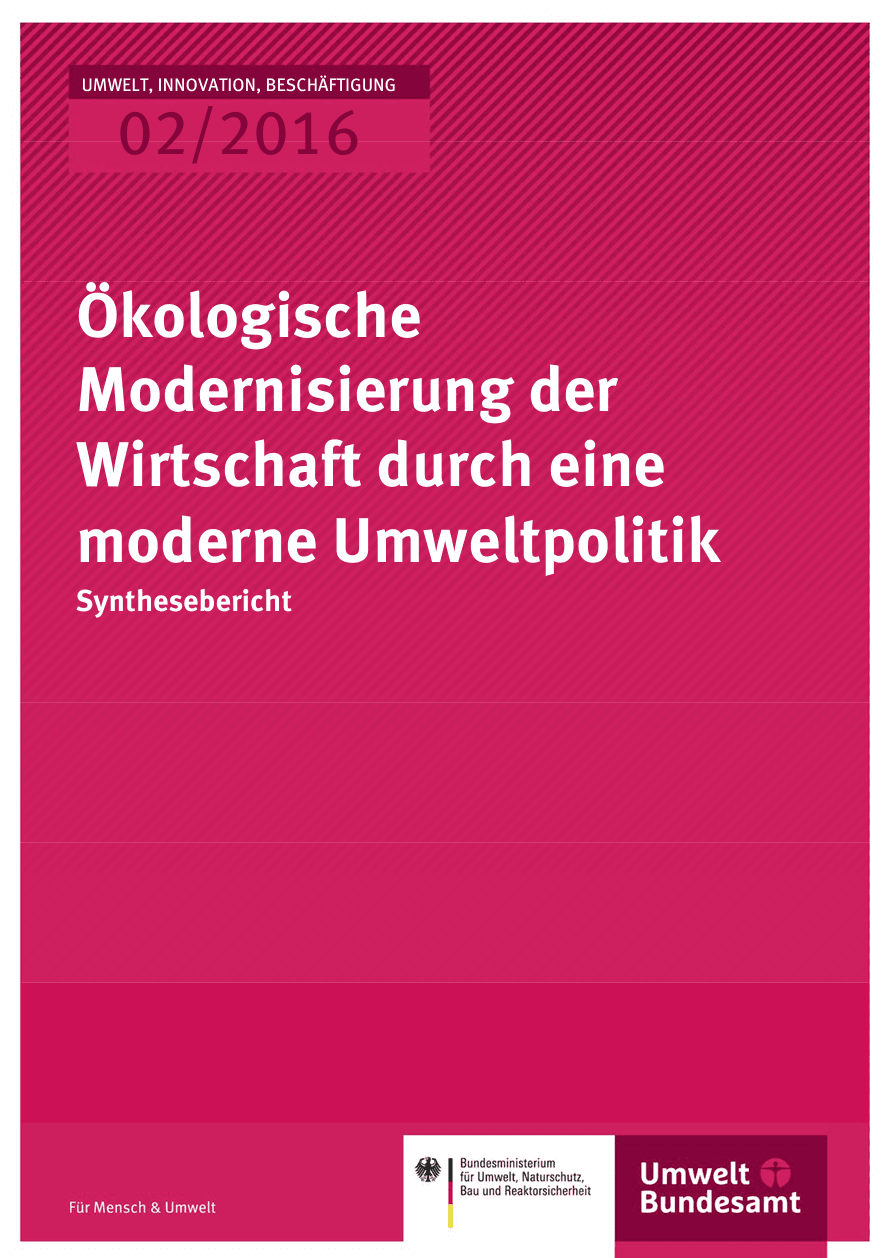Ecological modernisation of the economy through a modern environmental policy. Synthesis report
Abstract
This study on the ecological modernisation of the German economy by means of a modern environmental policy shows that such a strategy and transformation can have positive effects for the German economy and society in the medium to long term. However, the results also make it clear that the ecological modernisation of the German economy requires a great deal of political and economic effort, especially with a view to a short-term time horizon. This is based, on the one hand, on the fact that the necessary transformation must be initiated quickly if the sustainability goals envisaged by the German government are to be achieved. Such a rapid realisation of the modernisation of the German economy partly requires high initial investments, which, however, amortise over time and are transformed into returns. The transformation necessary for an ecological modernisation of the economy will necessarily not conform to the interests of all actors over time, even if, as this study makes clear, it achieves positive economic effects overall. In order to reach balanced decisions supported by a broad majority in such a complex context, the initiation of a dialogue process between the state, business and civil society seems urgently necessary. According to the results of this study, an ambitious modernisation of the economy will not only internalise external costs in accordance with the polluter pays principle, but can also have positive effects on employment and economic growth. At the same time, the need for skills increases. In summary, the study makes it clear that an appropriately instrumented and ambitious ecological modernisation of the economy will not have a braking effect on the same, especially in the medium to long term, but will rather prove to be an innovation driver for a modern and sustainable economy.
